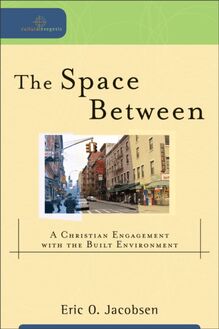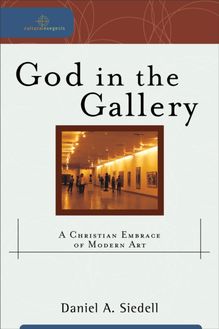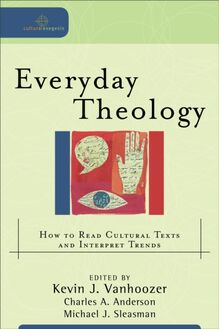Beginning with the Word (Cultural Exegesis) , livre ebook
153
pages
English
Ebooks
2014
Vous pourrez modifier la taille du texte de cet ouvrage
Obtenez un accès à la bibliothèque pour le consulter en ligne En savoir plus
Découvre YouScribe en t'inscrivant gratuitement
Découvre YouScribe en t'inscrivant gratuitement
153
pages
English
Ebooks
2014
Vous pourrez modifier la taille du texte de cet ouvrage
Obtenez un accès à la bibliothèque pour le consulter en ligne En savoir plus
Publié par
Date de parution
29 avril 2014
Nombre de lectures
1
EAN13
9781441244840
Langue
English
Publié par
Date de parution
29 avril 2014
Nombre de lectures
1
EAN13
9781441244840
Langue
English
© 2014 by Roger Lundin
Published by Baker Academic
a division of Baker Publishing Group
P.O. Box 6287, Grand Rapids, MI 49516-6287
www . bakeracademic . com
Ebook edition created 2014
All rights reserved. No part of this publication may be reproduced, stored in a retrieval system, or transmitted in any form or by any means—for example, electronic, photocopy, recording—without the prior written permission of the publisher. The only exception is brief quotations in printed reviews.
Library of Congress Cataloging-in-Publication Data is on file at the Library of Congress, Washington, DC.
ISBN 978-1-4412-4484-0
Unless otherwise indicated, Scripture quotations are from the New Revised Standard Version of the Bible, copyright © 1989, by the Division of Christian Education of the National Council of the Churches of Christ in the United States of America. Used by permission. All rights reserved.
Scripture quotations labeled KJV are from the King James Version of the Bible.
Scripture quotations labeled REB are from the Revised English Bible © 1989 Oxford University Press and Cambridge University Press.
_____________
To Sue,
for all things, once again, and forever
_____________
Contents
Cover i
Series Page ii
Title Page iii
Copyright Page iv
Dedication v
Acknowledgments ix
Introduction 1
1. Beginning with the Word 11
2. The Sign in Our Time: Sound and Fury, Suffering and Significance 31
3. Picturing the Truth 57
4. From Signs to Stories: Language in the Grasp of God 77
5. Modern Times: Literature and the Patience of God 103
6. “I Will Restore It All”: Christ, Fiction, and the Fullness of Time 135
7. Defending a Great Hope: The Word and the Thing Become One 155
8. Dwelling in Possibility: Visions of Justice, Dreams of Deliverance 183
9. A Good Man Is Hard to Find: Christ and the Poets 207
Notes 225
Works Cited 249
Index 253
Back Cover 261
Acknowledgments
This book grows out of a long experience of reading, teaching, and writing about literature and theology, and my debts are many and varied to the guides who have helped along the way. As an undergraduate, I learned the joys of theology from Morris Inch and the late Bob Webber; in seminary, the late Stuart Barton Babbage showed me how bring that theology together with my love of literature; and in the graduate study of English, the late Milton Stern provided an incomparable model of dynamic teaching and reflection.
Early in my career, my student Mark Walhout introduced me to the work of Paul Ricoeur and Hans-Georg Gadamer, and I have spent the past three decades trying to bring those theorists together with Karl Barth and Dietrich Bonhoeffer on the one hand, and the likes of Emily Dickinson, Frederick Douglass, and William Faulkner on the other.
I wish to pay special thanks to four former colleagues: to Alan Jacobs, for rollicking conversations marked by flights of metaphor and arresting discoveries; to Ashley Woodiwiss, for loyalty and laughter in a friendship that has ranged widely over the political, cultural, and theological landscape; to Mark Husbands, for his perceptive understanding and his joyful articulation of the importance of Karl Barth’s theology; and to Mark Noll, for his friendship and unstinting encouragement, his sustained and stimulating engagement with my work, and his exemplary commitment to the life of the mind under the lordship of Christ.
Two pastors in particular—let me call them pastoral teams—trained me in the ways of faithful obedience to Christ and the gospel: JoAnn Harvey and the late Bob Harvey (Wheaton) and John and Hazel Timmer (Grand Rapids). And for more than three decades, Paul Heidebrecht has been a source of wisdom, hilarity, and insight as a fellow parishioner, former pastor, and lifelong friend.
Beyond my local provinces, I owe a great deal to friends and colleagues from around the world. Three of them, all from the British Isles, head the list: Jeremy Begbie, David Livingstone, and Tony Thiselton. I also have in mind Katherine Clay Bassard, Andrew Delbanco, Denis Donoghue, Jim Dougherty, Tracy Fessenden, John Gatta, Stanley Hauerwas, Harold Heie, David Jeffrey, George Marsden, the late Barbara Packer, Manfred Siebald, Jim Turner, Clare Walhout, John Webster, Ralph Wood, and Nick Wolterstorff.
At Wheaton College, during the years that I have worked on this book, Provost Stan Jones, Dean Jill Baumgaertner, and my department chair, Sharon Coolidge, have consistently provided tangible support and a steady stream of encouragement. I am grateful to the donors who have funded the chair I currently hold as the Arthur F. Holmes Professor of Faith and Learning, just as I am thankful to God for all I learned from Art Holmes over the course of more than four decades as his student, colleague, and friend.
And finally, I want to thank two student assistants at Wheaton who provided remarkable help, one at the beginning of this project and one at its close. At the start, Annie Erhardt Reed faithfully took and transcribed notes from my lectures in two different courses, and those notes provided the seeds from which this book eventually flowered. At the close, Benjamin Holland was equally diligent in the proofreading and fact-checking he did on the page proofs. Like Annie, he was a quick learner, a painstakingly careful worker, and a person of consistent good cheer.
At Baker Academic, I thank Bob Hosack for his perseverance and Lisa Ann Cockrel for her proficiency. For years, Bob waited patiently for this manuscript, and in a matter of months, Lisa shepherded it through a complex production process.
I want to close by giving my deepest word of thanks to Sue Lundin. For the whole of our adult lives, Sue and I have shared in the building of a household, the raising of our family, and the fellowship and service of the church. We’ve delighted together in mutual friendships, shared a love of the arts, embraced robust rounds of activity—from tennis to mountain climbing to cycling without end—and found endless encouragement and challenges in the life of the mind. Sue is my most perceptive critic and receptive reader, and although my debt to her is endless, nothing in life gives me greater joy than trying to repay it.
Introduction
When our three children were very young, I happily spent countless evenings playing zany games we had invented. Many involved physical comedy and stunts of some kind—I had been raised, after all, on a solid diet of Buster Keaton, Laurel and Hardy, and the Three Stooges. My children and I came up with Burger Bumpers, for example, in which we strapped pillows to ourselves and gently careened into one another in the wide open spaces of our living room; Sea Drop involved my lifting two of them bundled together in a blanket and carrying them around the house, until I dropped them onto a mattress or cushioned chair; and then there was Daddy Mountain, in which I stood and assumed a craggy pose as each one in succession grappled his or her way up my 6-foot-6½-inch frame, only to be dislodged from the mountain by rumbling tremors.
These were great games, but they could be exhausting, so I looked forward each night to the way we brought our play to a close, just before the kids went to bed. At this point we turned from the slapstick of the Stooges to verbal games inspired by the likes of Ogden Nash and Dr. Seuss. My favorite was one in which I would begin a story of some kind by making up two lines of quasi-poetry, with the last word in the second line left blank. Any one of the children was free to slap down a rhyme to complete the line, and we would go on from there, as I scrambled to weave a story with the thread of those unforeseen rhymes.
What a delight I took in those games! Our verbal escapades brought back memories of my own childhood fascination with the shapes of letters and the sounds of words, even as they tapped into a vein of pleasure and perplexity that I was mining in my new job as a college English professor. “The sound is the gold in the ore,” Robert Frost once wrote in an effort to describe poetry’s uniqueness. The “mystery is how a poem can have wildness and at the same time a subject that shall be fulfilled.” The heart of this mystery, he concludes, is “the figure a poem makes. It begins in delight and ends in wisdom” (776–77).
This book is an effort on my part to think, along with you, about words—about what we do with them, how we think of them, what we make of them, and what they make of us. It is an effort at thinking rooted in the spirit and practice of playfulness that marked my childhood musings, that inspired my play as a father with my children, and that continues to energize my teaching and research. Throughout Beginning with the Word I seek to keep alive a sense of delight by anchoring our search for wisdom in personal experience and the infinite play of possibilities that literature opens before us. To that end, the argument that unfolds in these chapters will be replete with images, characters, and episodes from poetry and fiction along with a few key incidents from my own past.
The Task of Thinking and the Joy of Theology
For all its emphasis on the delights of language, this book remains unapologetically a search for wisdom and an exercise in thinking. Several years after Emily Dickinson died in 1886, her sister Lavinia tried to explain the seclusion that had marked the last two decades of the poet’s life. “As for Emily,” Lavinia observed, “she was not withdrawn or exclusive really. She was always watching for the rewarding person to come, but she was a very busy person herself. She had to think—she was the only one of us who had that to do.” 1
In describing her sister’s calling, Vinnie Dickinson got it right, for thinking is a vital kind of work, a genuine form of human action. To think creatively, to struggle with an opaque text or confounding idea, to seek connections between periods of history or disciplines of thought, and to search for the precise






